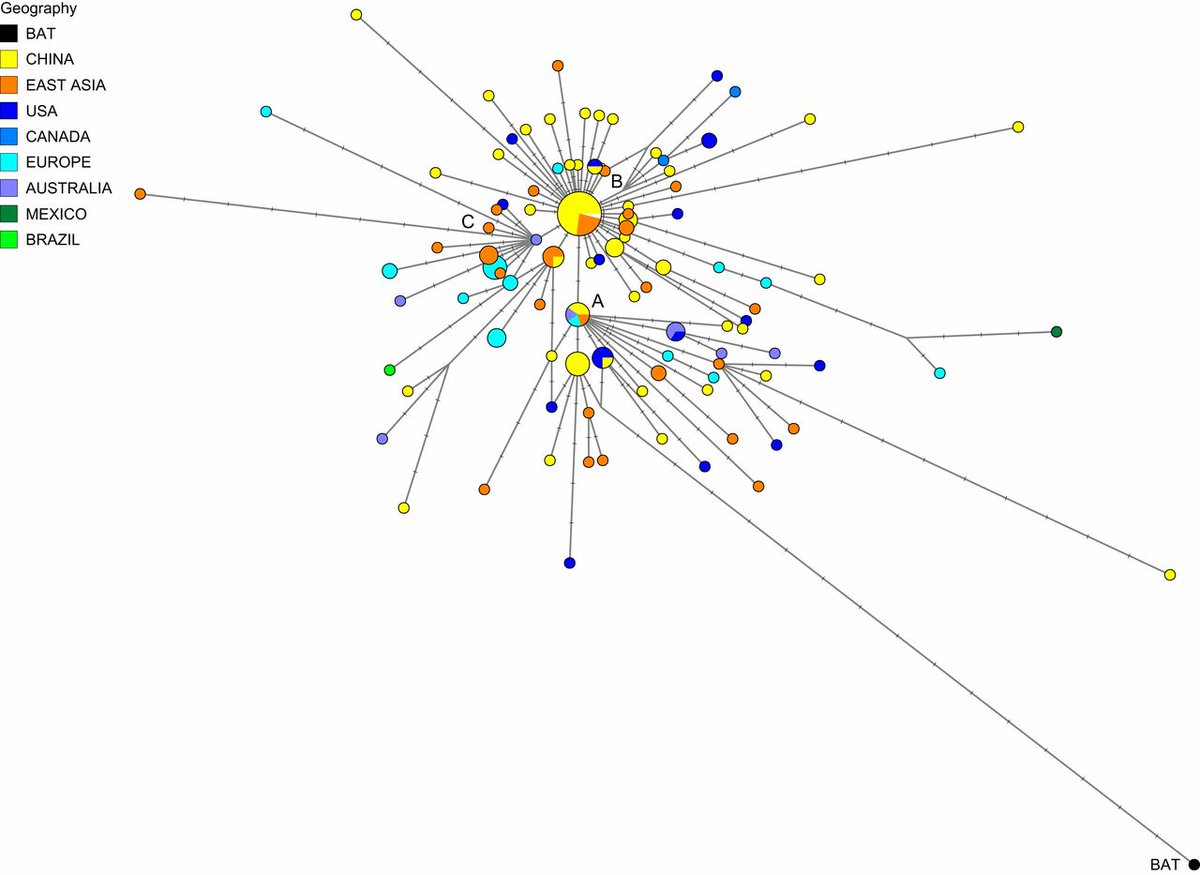
Why do I find the lab leak conversation suppression interesting?
Where else can we see our sensemaking fail in real-time, this clearly?
- Govenment
- Academia
- Medicine
- Journalism
- International orgs
- Factcheckers
- Tech Companies
- Wikipedia
All getting it wrong at once.
Where else can we see our sensemaking fail in real-time, this clearly?
- Govenment
- Academia
- Medicine
- Journalism
- International orgs
- Factcheckers
- Tech Companies
- Wikipedia
All getting it wrong at once.
Wikipedia should never have classified the lab leak hypothesis as "misinformation", but even now it's still "debating" whether to correct: cnet.com/features/wikip…
Here's how fact checkers, Facebook, and YouTube have handled it. Facebook in particular had to pull an about-face after deleting over *one million* posts.
https://twitter.com/Iseravi1/status/1405952303291531267?s=20
What about academia? Look no further than top academic journal The Lancet and its shambolic entry into the fold. It's now had to retroactively declare a conflict for the organizer of the letter, and that's not even 1% of the correction needed:
https://twitter.com/alexandrosm/status/1401813071635501056?lang=en
How about Government? President Biden has now asked the intelligence agencies to investigate a lab leak, but about a year ago, they had already declared quite strongly against any sort of engineered scenario --
https://twitter.com/alexandrosM/status/1404388800478912515?s=20
How about journalism? Corrections like this are so cringe. Vox didn't just get it wrong. They called it a "conspiracy theory" and a "distraction". Scientific consensus is not enough of an excuse for being this heavy handed.
https://twitter.com/voxdotcom/status/1396959823372107779?s=20
However many journalists did not need to be convinced. At the moment Fauci declared the lab leak a "conspiracy theory" they fell in line in miliseconds. It's almost like their job isn't to doubt the authorities but to amplify their message and do their enforcement for them.
As for international organizations, look no further than the public comments by the Director-General of the World Health Organization. "we’re not just battling the virus; we’re also battling the trolls and conspiracy theorists that push misinformation". who.int/director-gener… 

If it's not clear that the WHO Director-General's statements were used to suppress the lab leak hypothesis, here's how the Lancet letter cited it: "We support the call from the Director-General of WHO to promote scientific evidence and unity over misinformation and conjecture."
How about medicine? The American Medical Association just voted to encourage social-media platforms to “crack down on medical misinformation,” including by “altering underlying network dynamics or redesigning platform algorithms.” archive.is/sjJLn
That's right. They're actually saying that *not enough* was done, and that more should be done in the future to keep the anti-establishment voices down. To say they've not learned their lesson is an understatement -- they've actually learned the opposite.
We will need a thorough post-mortem to understand how all our failsafes failed at the same time. I've done a fair amount of digging into the events that led to this remarkable homophony, but this is just one layer.
https://twitter.com/alexandrosM/status/1404374212907700228
As @iseravi1 has said, we need an ironclad norm that no "scientific consensus" can *ever* be reached within weeks. If anyone claims that scientists have completed their process in 20 days, they're lying. No fact checker should ever credit such a claim ever again.
As a closing thought, please remember that knowing they got it wrong doesn't mean everyone who challenged them is right.
https://twitter.com/alexandrosM/status/1406479776865345539?s=19
• • •
Missing some Tweet in this thread? You can try to
force a refresh






